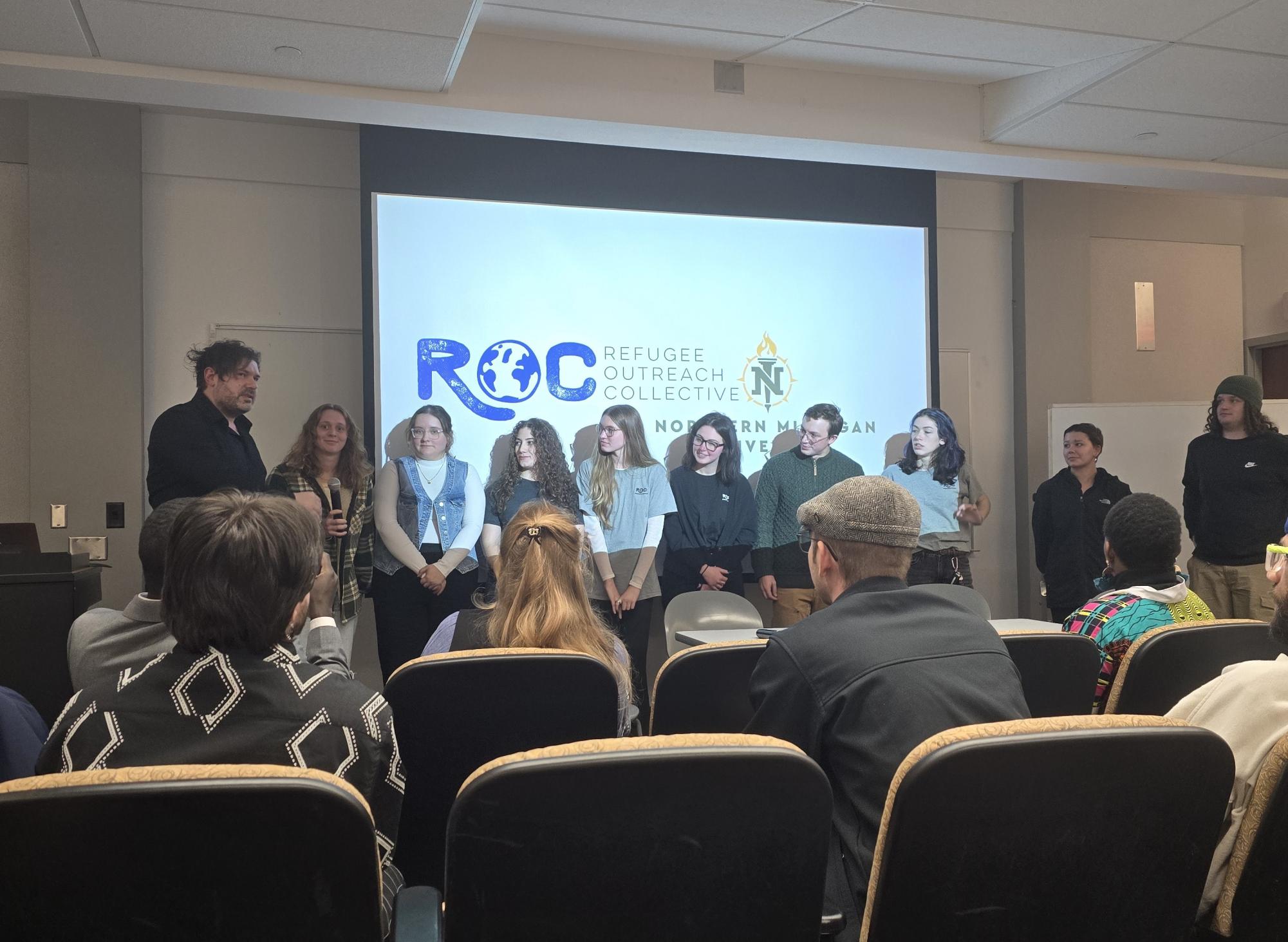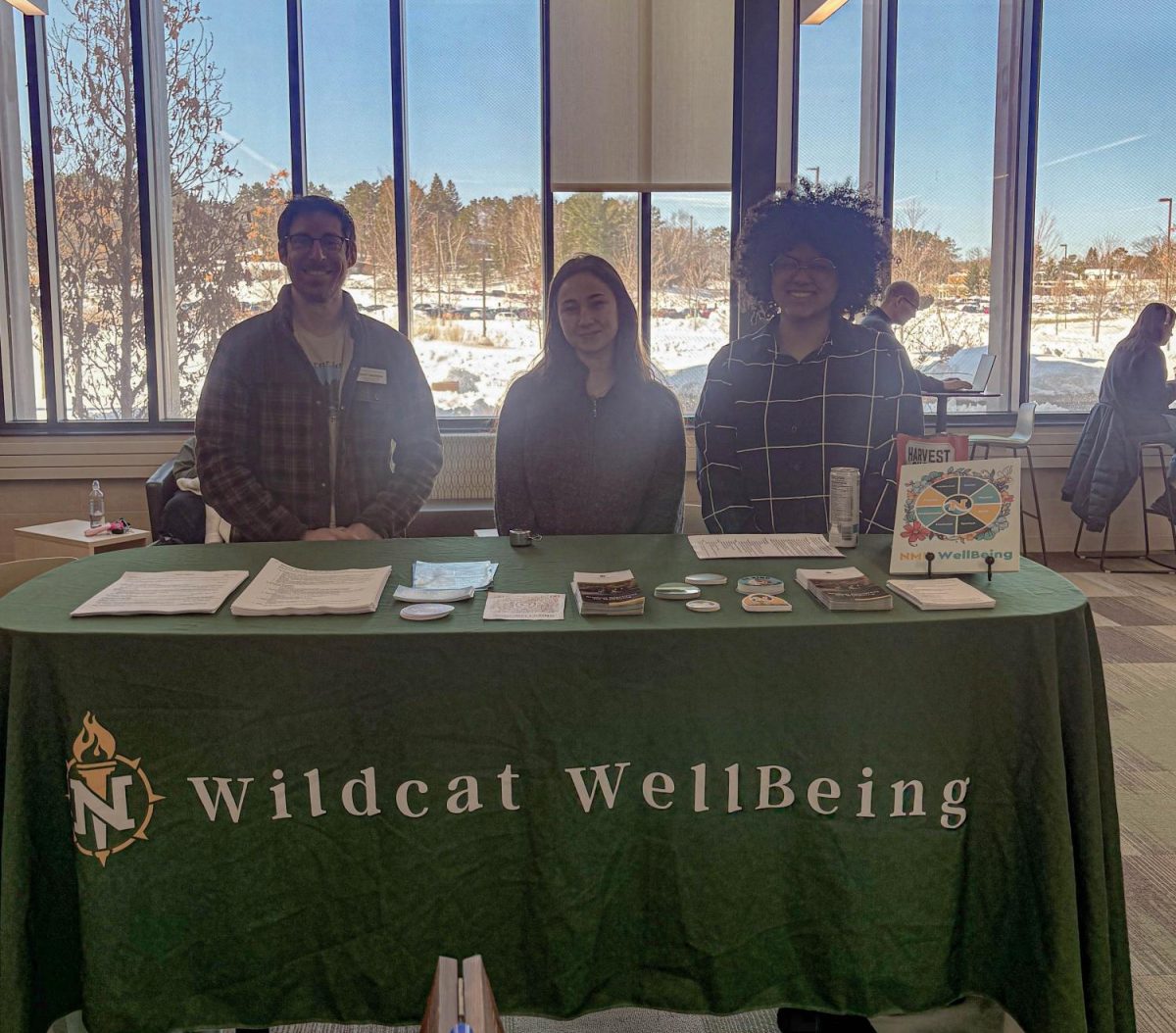The Refugee Outreach Collective (ROC) is a student group that is currently partnering with NMU to provide educational experiences for refugees in the Dzaleka refugee camp in Malawi. The organization is led by Mlado Ivanovic, a philosophy professor at NMU and a refugee from Bosnia. The group created a space to hold the Refugee Voices of Resilience event.
To witness means to experience and act as a response. To act is to contribute to society and the betterment of future generations. There are thousands of people across the globe struggling to seek safety and connection. The speakers say 30,000 refugees are currently displaced, and less than 1% of them will be resettled to a new home on an annual basis.
To be human is to seek connection. Displaced refugees are often cast out from their host country. Despite spending years in the same country, learning a new language, rebuilding their lives and contributing to their communities, refugees can experience a number of cruelties.
“Education is empowerment,” Ivanovic said. “By providing access to higher education, we are giving refugees the tools to take control of their lives and make positive changes in their communities.”
The Global Classroom program, facilitated by ROC, has enabled refugees in Dzaleka to take courses at Central Michigan University, with NMU students serving as teaching assistants.
Dilli Gautam is a refugee from Bhutan, leaving in 1992. For sixteen years, he lived in a refugee camp in Nepal. He describes the experience as a refugee as being displaced not only from his home country, but also from the new country to which he moved. He says despite spending years in refugee camps and learning the language and culture, people who are displaced are often categorized as simply numbers, or those to be moved around.
“Refugees are not just numbers,” Gautam said. “We are individuals with great intellect and potential to contribute to our communities.”
Shukurani Nsengiyumva was born to refugee parents in a camp in Tanzania. She grew up in Malawi while awaiting resettlement. At the age of 14 she came home one day to find that her family would be moving to America. She left behind her life in Malawi and started again in Kalamazoo, Michigan.
Despite being a senior in high school when she left Malawi, she had to restart her education as a freshman in Kalamazoo. She became an advocate for her mom while she tackled paperwork and understanding the new American culture.
“I hope that my story sheds light on what it means to start over, to carry responsibilities you’re not ready for and to find resilience when you’re stretched to your limits,” Nsengiyumva said.
Anna Kovalenko immigrated from Ukraine to the U.S. in 2013 just before the war began. In 2022, when Russia invaded Ukraine, Anna returned home to help her mother evacuate. The day before her appointment with the U.S. embassy, the building shut down and she was left stranded with her mom. They had no choice but to travel to Poland and attempt to make it to the U.S. embassy there. The stress of possibly losing her family and being trapped in a war frightened her, but she was eventually able to make it to America with her mother.
Upon her arrival to her home in Grand Rapids, she realized there were thousands of Ukrainians about to be displaced by the war, trying to find refuge, but with nowhere to go. For many, it is difficult to resettle unless through private resettlement and their family has a connection with someone already living in the U.S. Kovalenko organized a resource for Ukrainian refugees in Michigan and works with families to help them rebuild their lives here.
The event also featured a presentation by Banjor Musa. Musa was born in Sudan and immigrated to America at a young age. He works as a part of the Office of Global Michigan to advise the state on topics important to refugees and immigrants. He also works with the Michigan Immigrant and Refugee Council (MIRC) along with some of the other speakers at the event.
“Our vision is really just to be a leading resource and advocate for immigrants and refugee in the state of Michigan,” Musa said.
The event concluded with a call to action, urging attendees to witness the stories shared and to get involved in supporting refugee communities. Whether it is through volunteering, advocacy or financial contributions, we can come together as a community to create a more inclusive and understanding world.







